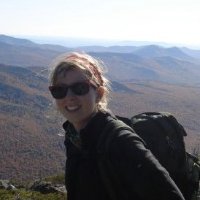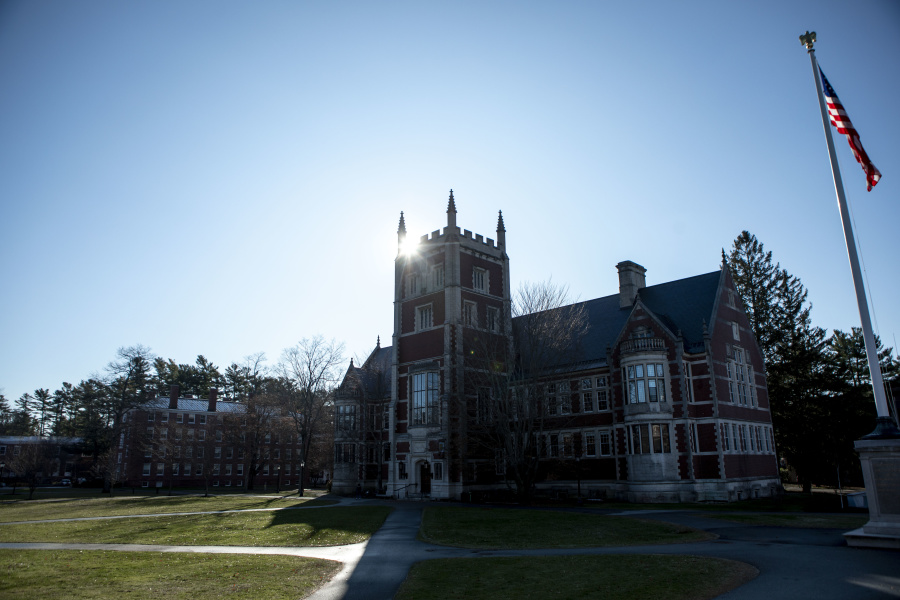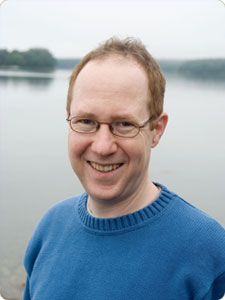Kristen Gunther ’09 Leads the March for Science Charge
We are used to seeing people take to the streets to defend their rights or a particular political point of view. But can you get people to march for a mode of inquiry? Bowdoin alumna Kristen Gunther ’09 believes so, and is working to make it happen.
With a small team of like-minded scientists and science supporters, Gunther has for the last 10 weeks been mobilizing people across the country and the world to join the March for Science on April 22.
Since the end of January, Gunther has been working as the March for Science’s “mission strategy” leader, honing the goals, values, and language of the movement.
“It’s a powerfully aspirational movement,” she said recently during a telephone conversation. “It is a moment for people to articulate what they want the relationship between science and the broader society or common good to be. People are working hard at saying, this is how we can support a robust scientific enterprise, here is how it serves people, and this is how it applies to policy in support of the common good.”
The March’s website calls for “evidence-based policymaking, science education, research funding, and inclusive and accessible science.”
While the largest march will take place in Washington DC’s National Mall, more than 500 satellite marches are planned in communities around the world. All the marches will occur on April 22, which is Earth Day. Bowdoin is organizing buses to take interested students, staff, and faculty to the Saturday march in Portland, Maine.
Soon after she returned to Wyoming after attending the Jan. 21, 2017, Women’s March in New York City, Gunther connected with her friend and fellow writer, Caroline Weinberg. They both have scientific backgrounds — Weinberg is a public health researcher with a medical degree and Gunther is finishing up her PhD in ecosystem science and management at the University of Wyoming.

Kristen Gunther, who has an MFA in creative writing from the University of Wyoming, majored in environmental studies and English, and minored in biology, at Bowdoin.
Her current doctoral work is broadly focused on the application of science and how to communicate emerging scientific concepts to people who use the science on the ground, like rangeland managers. “Without the kind of support I got at Bowdoin for multi-disciplinary thinking, I wouldn’t have wound up at the PhD program I am in, and doing the kind of inter-disciplinary work I do,” she said. “This background also made me useful for the March for Science.”
As a Bowdoin student, Gunther served on the climate committee advisory board and worked for Sustainable Bowdoin. She also interned for one summer at The Nature Conservancy, under the mentorship of Kate Dempsey ’88, with funding from a Psi Upsilon Environmental Fellowship from Bowdoin. “All those experiences were phenomenal, and the support of that fellowship was vital toward pushing me down this path.”
They said to one another that they wished people would next come together to support scientists.
“Turns out lots of other people were having the same thought!” Gunther said.
Three days later, on Jan. 24, the March for Science organization was born. Its national committee — all of them, including Gunther, working unpaid as volunteers — worked fast to establish connections and partnerships with more than 200 museums, aquariums, colleges and universities, scientific associations, and trade organizations.
While in some ways the catalyst for staging the march was a reaction to President Donald Trump’s administration and its actions that indicate a turning away from proven scientific findings, particularly in the realm of climate change, Gunther says the message is much broader.
“What we are learning and what people are reacting to is we need to aspire to have a closer relationship between science and public life and policy, and that reaches a lot of different political situations and communities around the world,” she explained. “There is a longer history of anti-science policies, and a disconnect between people and science, that goes way beyond the US.”



